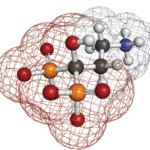
Data indicate that patients with RA tend to accumulate many more episodes of heart failure and have a higher risk of mortality following heart failure than do patients without RA.
Africa Studio/shutterstock.com
CHICAGO—Sherine E. Gabriel, MD, MSc, professor of medicine at Rutgers Medical School in Newark, N.J., and a past president of the ACR, presented an overview of cardiovascular disease and rheumatology on a Saturday morning to a room overflowing with rheumatologists attending the ACR’s State-of-the-Art Clinical Symposium in April. She noted that physicians have known for a long time that patients with rheumatoid arthritis (RA) have significantly increased overall mortality compared with non-RA patients. In particular, poorer cardiovascular survival in patients with RA compared with non-RA patients appears to account for most of the increased mortality associated with RA. Even though cardiologists have been able to decrease mortality in non-RA patients, people with RA have not benefitted from those breakthroughs.
“Now, however, things are starting to change,” explained Dr. Gabriel. This may be because rheumatologists have become successful at achieving tighter immunological control in patients with RA and have thereby improved the treatment of RA and also its comorbidities.
Heart Disease & Failure in RA Today
Dr. Gabriel acknowledged, “The news is not all entirely good, though. … We still see people with rheumatoid arthritis having higher mortality.” Unfortunately, even at the time of diagnosis of RA, patients with RA are at a threefold higher risk of having been hospitalized for a myocardial infarction than patients without RA. Interestingly, however, they are approximately half as likely to present with angina pectoris. This suggests that ischemic heart disease precedes RA and is often silent in this patient population. In addition, patients with RA are approximately one-and-a-half times more likely to die after a myocardial infarction than are patients without RA. This difference is true even though patients with RA are just as likely as patients without RA to be treated aggressively by acute reperfusion therapy and/or be prescribed cardiovascular medications.
Heart failure in patients with RA has been less well studied than ischemic heart disease. That said, the data indicate that patients with RA tend to accumulate many more episodes of heart failure and have a higher risk of mortality following heart failure than do patients without RA. This is true even after adjustments for age and sex, suggesting that the increased cardiovascular risk stems organically from RA.
Patients with RA and heart failure also have a higher rate of hospitalization and longer hospital stays than heart failure patients without RA. In addition, in patients with RA, the heart failure tends to happen with preserved ejection fraction, suggesting that not only is the presentation of heart failure different in this patient population, but the nature of the cardiovascular disease is different.
Unfortunately, unlike patients with ischemic heart disease, patients with RA and heart failure tend to be managed less aggressively than patients with heart failure who do not have RA.
Implications for Clinical Care
The increased risk for heart disease has implications for how rheumatologists treat their patients with RA. It is clear from the literature that the underlying inflammatory response is driving the cardiovascular risk. That said, it can be difficult to make solid conclusions about the relationship between RA and heart disease, because many of the drugs used to treat RA can have a direct negative effect on the cardiovascular system. Example: disease-modifying anti-rheumatic drugs (DMARDs), biologics, corticosteroids and non-steroidal anti-inflammatory drugs (NSAIDs) can have deleterious cardiovascular effects, but the suppression of inflammation via these agents should have beneficial cardiovascular effects.
Dr. Gabriel explained, “The only way to sort it out is with data and studies.” She described some of the studies that have been performed on the topic (see sidebar, right).
In the case of glucocorticoids, the potential benefits include an increase in high-density lipoproteins (HDL). “We know that RA is associated with low HDL,” elaborated Dr. Gabriel. In addition to ameliorating this pattern, glucocorticoids may also lower levels of lipoprotein (a) and homocysteine.
On the other hand, glucocorticoids can also contribute to cardiovascular risk and studies have actually shown that glucocorticoid use in patients with RA is associated with a dose-dependent increase in mortality. That said, Dr. Gabriel said there may be dose thresholds below which mortality risk does not increase, and these low doses are the ones most frequently used by rheumatologists.
Another example of the balance between inflammation and direct cardiovascular risk is methotrexate. Methotrexate may contribute to cardiovascular risk by reducing folate stores, which can, in turn, lead to increased homocysteine, which is prothrombotic. This effect has been described in the literature, but it is unclear if it is important for patients with RA. This is especially the case because, to date, all studies have been observational, and it has been difficult to tease out the confounders.
Dr. Gabriel concluded her presentation by stating the best way to manage cardiovascular disease in patients with RA is via an interdisciplinary cardio–rheum clinic, such as the one at the Mayo Clinic in Rochester, Minn.
Preventive cardiologists partner with rheumatologists to provide individualized cardiovascular risk assessment and risk reduction. The clinic uses a cardiovascular risk profile tool that incorporates blood work (e.g., fasting lipid screen, lipoprotein [a] and high-sensitivity C-reactive protein). Patients also receive an electrocardiogram (ECG), arterial health screening and ECG with strain imaging. The results of these tests determine the need for further testing and/or pharmacotherapy for identified risk factors or treatment of subclinical atherosclerosis.
Rheumatologists contribute to the clinic their assessment of disease-related cardiovascular risk factors, such as disease activity or prescribed medications. “The risk factors are a little bit different and the approach may be a little bit different,” explained Dr. Gabriel.
Lara C. Pullen, PhD, is a medical writer based in the Chicago area.
Studies on the Cardiovascular Effects of the Drugs Used by Rheumatologists
- Boers M, Nurmohamed MT, Doelman CJA, et al. Influence of glucocorticoids and disease activity on total and high density lipoprotein cholesterol in patients with rheumatoid arthritis. Ann Rheum Dis. 2003;62:842–845.
- Asanuma Y, Kawai S, Aoshima H, et al. Serum lipoprotein(a) and apolipoprotein(a) phenotypes in patients with rheumatoid arthritis. Arthritis Rheum. 1999 Mar;42(3):443–447.
- Lazzerini PE, Capecchi PL, Bisogno S, et al. Reduction in plasma homocysteine level in patients with rheumatoid arthritis given pulsed glucocorticoid treatment. Ann Rheum Dis. 2003 Jul;62(7):694–695.
- del Rincón I, Battafarano DF, Restrepo JF, et al. Glucocorticoid dose thresholds associated with all-cause and cardiovascular mortality in rheumatoid arthritis. Arthritis Rheum. 2014 Feb;66(2):264–272.
- Hoekstra M, Haagsma CJ, Doelman CJ, van de Laar MA. Intermittent rises in plasma homocysteine in patients with rheumatoid arthritis treated with higher dose methotrexate. Ann Rheum Dis. 2005 Jan;64(1):141–143.
- Choi HK, Hernán MA, Seeger JD, et al. Methotrexate and mortality in patients with rheumatoid arthritis: A prospective study. Lancet. 2002 Apr 6;359(9313):1173–1177.

